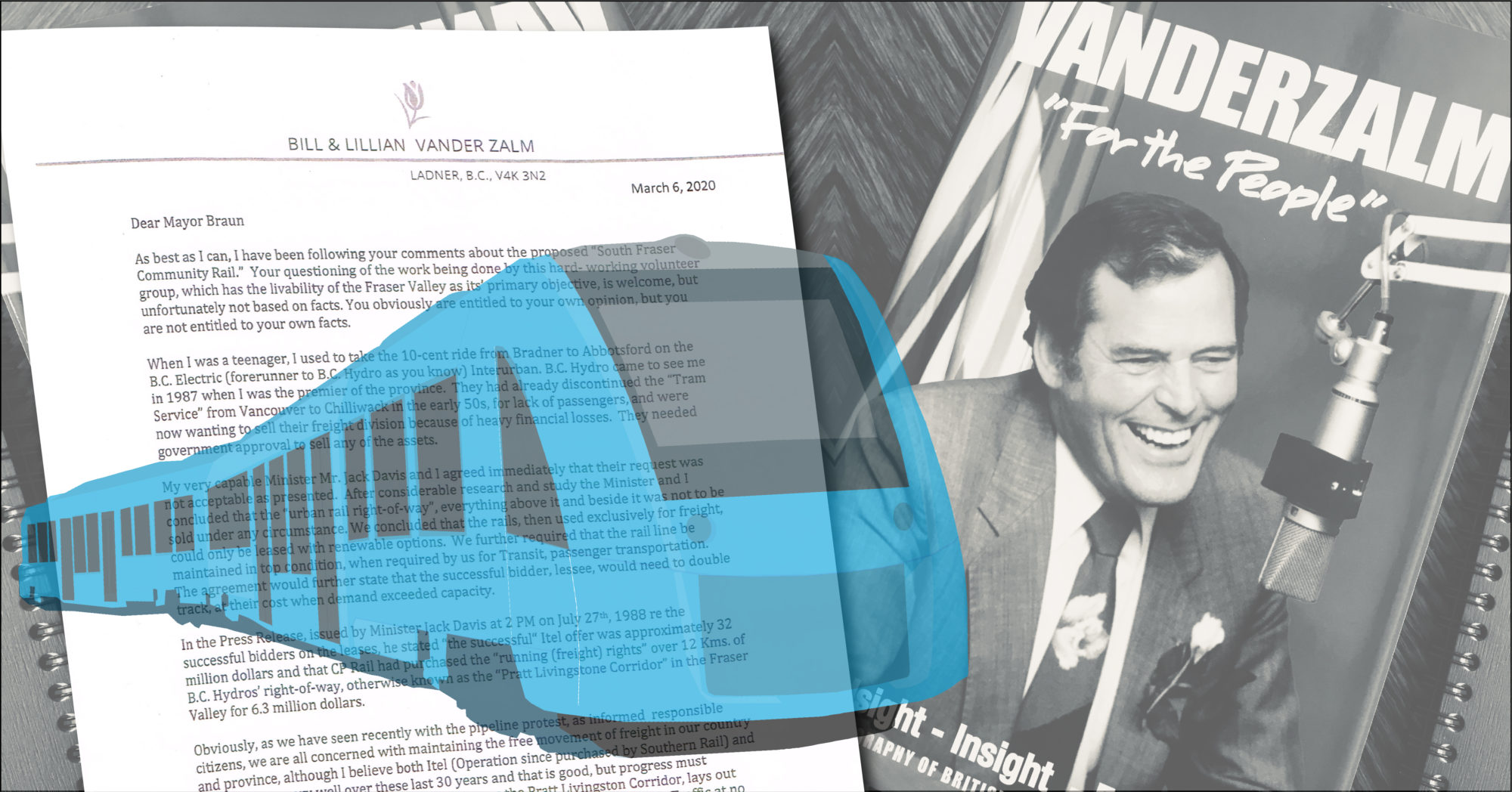This is the latest edition of our bi-monthly South Fraser Community Rail Newsletter. Please subscribe to stay in the loop of the latest updates! The recently announced purchase of Bombardier by the Alstom Group plus COVID-19 is a game-changer for TransLink’s SkyTrain plans that are yet to receive senior government final approval for the Fraser Highway proposal …
Author Archives: Site Admin
UPDATE: Letters exchanged between Former Premier and Mayor of Abbotsford on Interurban
Last month we published a letter that Former BC Premier Bill Vander Zalm sent to Abbotsford Mayor Henry Braun setting the record straight on the public interurban rail rights, the 99 km rail line that connects Surrey to Chilliwack. It was under Bill Vander Zalm’s direction that the public rights to this line were preserved …
Rail on the Agenda – News Update!
As the Province’s transportation study of our region unfolds, we will make sure they know that our communities wants Passenger Rail today. It must be top of the agenda.
No more waiting decades for Sky-High promises that don’t deliver.
BC to Host 2020 International Hydrail Conference
South Fraser Community Rail is pleased to announce participation in the upcoming 2020 International Hydrail and Global Sustainability Conference to be held in BC.
Community Rail Response to TransLink Report on Reviving Interurban Line
Patrick Condon is the James Taylor chair in Landscape and Livable Environments at the University of British Columbia’s School of Architecture and Landscape Architecture and the founding chair of the UBC Urban Design program. TransLink has released a report dated June 6 to the Joint Regional Transportation Planning Committee later shared with the Mayors Council …
Continue reading “Community Rail Response to TransLink Report on Reviving Interurban Line”
Former Langley Mayor: Wider Highway 1 Wont Fix Traffic Problem
In response to The Progress article titled “Highway 1 widening in Chilliwack”: It is a popular political notion that Highway 1 widening is overdue, and that it will go a long way to solving our traffic problem. The first part of that is true. I’ve had to deal with this issue myself 8 years ago …
Continue reading “Former Langley Mayor: Wider Highway 1 Wont Fix Traffic Problem”
The world’s first hydrogen-powered passenger train became fully operational in Germany this past November.
The trains, named Coradia iLint and manufactured by Alstom, can cover up to 1,000 kilometres (621 miles) with one tank of hydrogen, and can reach a maximum speed of up to 140 kilometres per hour. Though the trains are pricier upfront compared to old diesel engines, hydrogen fuel cells have many advantages over batteries.

